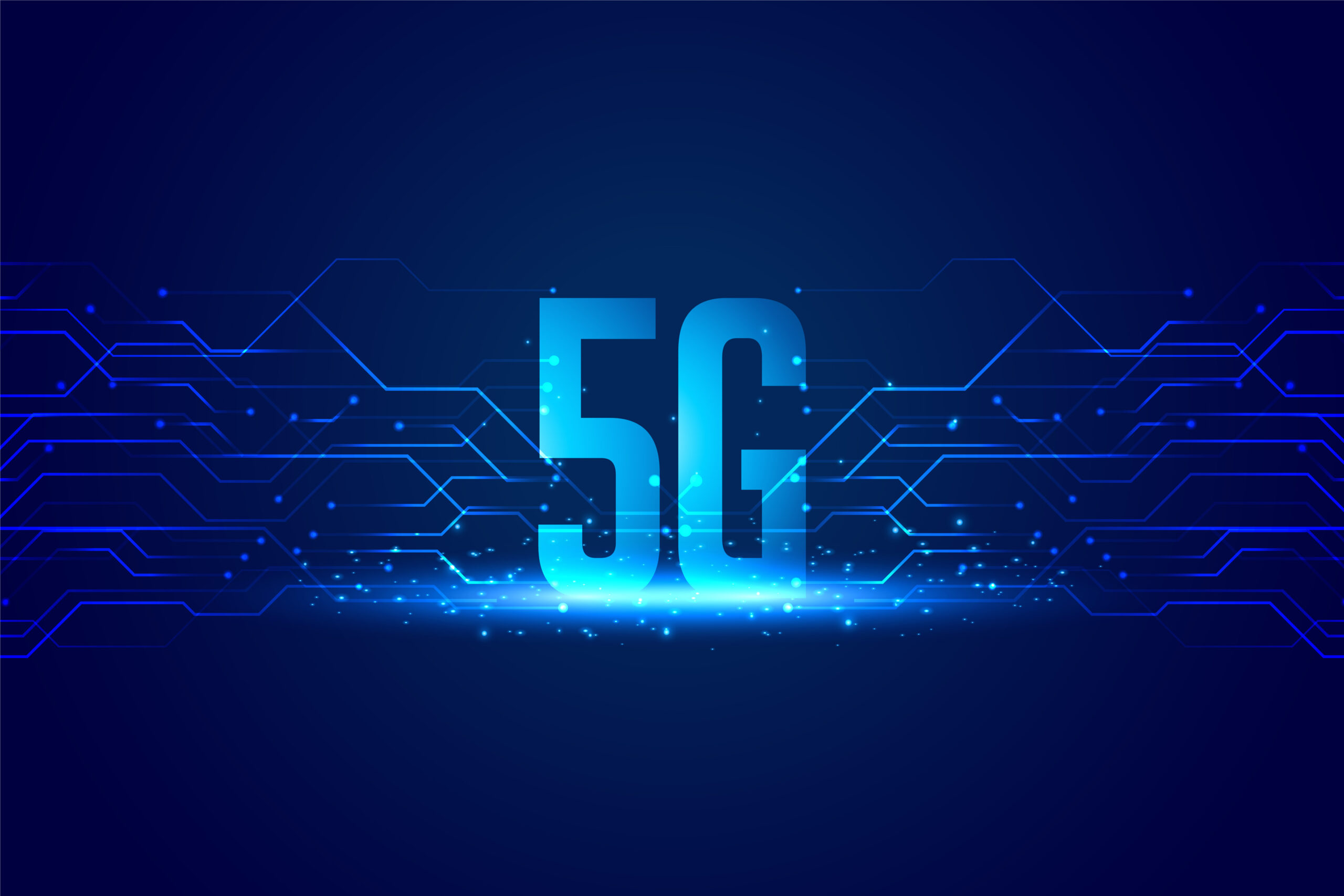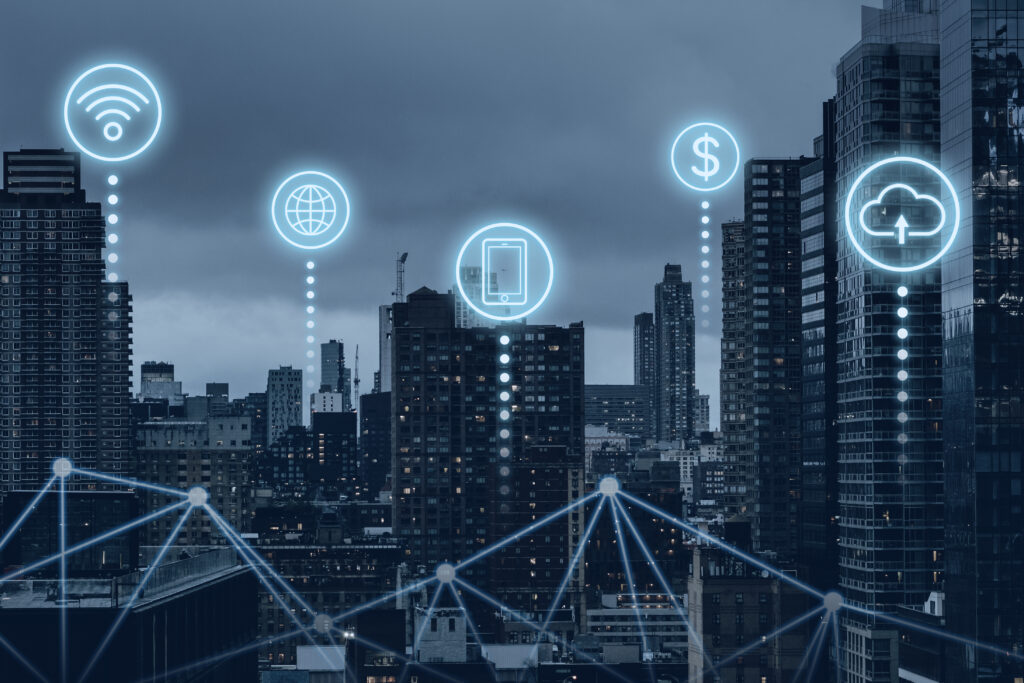5G Network Explained | Speed, Security & Benefits

5G is the fifth generation of mobile networks, designed to be faster, more reliable, and more efficient than its predecessor, 4G. It’s not just about quicker downloads 5G brings lower latency, greater capacity, and stronger connectivity, enabling new possibilities for everything from smartphones to smart cities. With speeds that can be up to 100 times faster than 4G, 5G is set to transform the way we connect and use technology in everyday life.
Beyond speed, 5G also focuses on improved security and stability. It offers enhanced encryption and advanced network management to protect users and businesses, making it a safer choice for critical applications like healthcare, finance, and autonomous vehicles. The benefits of 5G go far beyond personal use it lays the foundation for innovations such as the Internet of Things (IoT), augmented reality, and industrial automation.
What is 5G and How Does It Work?
5G stands for the fifth generation of mobile network technology, designed to deliver faster speeds, lower latency, and more reliable connections compared to previous generations. Unlike 4G, which mainly focused on improving internet speed for smartphones, 5G is built to handle much more from powering smart devices and autonomous cars to enabling advanced technologies like augmented reality and remote surgery.
At its core, 5G works by using higher-frequency radio waves, known as millimeter waves, along with existing cellular frequencies. These higher frequencies can carry more data at once, resulting in faster internet speeds and improved network capacity. To make this possible, 5G networks rely on a dense infrastructure of small cell towers placed closer together than traditional 4G towers. This setup reduces congestion, minimizes delays, and ensures that more devices can connect seamlessly at the same time.
By combining advanced antenna technologies such as Massive MIMO (Multiple Input, Multiple Output) and beamforming, 5G directs stronger and more efficient signals to each device. This makes the network not only faster but also smarter in managing bandwidth, ensuring smooth performance even in crowded areas. In simple terms, 5G is a major leap in connectivity that allows us to do more, in less time, with higher reliability.
5G vs 4G- The Key Differences
While 4G was a game-changer when it replaced 3G, the jump to 5G is far more significant. The most obvious difference is speed. On average, 4G networks deliver download speeds of 30–100 Mbps, while 5G can reach up to 10 Gbps under ideal conditions that’s nearly 100 times faster. This means tasks that take minutes on 4G, like downloading a movie, can be done in seconds on 5G.
Latency, or the time it takes for data to travel from one point to another, is another critical factor. 4G networks typically have a latency of around 30–50 milliseconds, whereas 5G can reduce this to as low as 1 millisecond. This ultra-low latency is what makes real-time applications like remote surgery, autonomous driving, and immersive gaming possible.
Capacity and efficiency also set 5G apart. While 4G networks often struggle in crowded areas such as stadiums or concerts, 5G can handle a far greater number of connected devices without slowing down. This scalability is essential for powering the Internet of Things (IoT), where millions of smart devices from wearables to industrial machines need to communicate instantly.
In short, 4G was built for faster mobile internet, but 5G is built for the future of connectivity supporting not just people, but entire ecosystems of devices and technologies.
Speed- How Fast is 5G Really?
Speed is one of the biggest selling points of 5G, and it delivers a dramatic leap forward compared to previous networks. In ideal conditions, 5G can reach speeds of up to 10 gigabits per second (Gbps). To put that into perspective, that’s fast enough to download a full HD movie in just a few seconds or stream 4K and even 8K videos without buffering. By comparison, most 4G networks top out at around 100 megabits per second (Mbps).
Of course, real-world speeds depend on factors like location, network coverage, and the number of users connected at the same time. In everyday use, people often experience 5G speeds that are 10 to 25 times faster than 4G. Even at the lower end, this performance is enough to make cloud gaming, video conferencing, and other data-heavy activities feel smooth and instantaneous.
The true advantage of 5G speed isn’t just about faster downloads it’s about enabling new possibilities. High-speed connections make it easier to run advanced technologies like virtual reality, autonomous vehicles, and smart cities. With such speeds, devices can process and share huge amounts of data in real time, paving the way for innovations that were previously out of reach.
Security- Is 5G Safer Than 4G?

Along with speed, security is a major improvement in 5G compared to 4G. One of the biggest upgrades is stronger encryption, which protects data as it travels across the network. This means that sensitive information whether it’s banking details, health records, or business communications is harder for hackers to intercept or manipulate.
5G also introduces more advanced network authentication. Unlike 4G, where devices and users could sometimes be tricked into connecting to fake cell towers, 5G requires stricter identity checks. This reduces the risk of common attacks like spoofing or eavesdropping. In addition, the network is designed to be more resilient, with built-in features to detect and respond to threats quickly.
Another key aspect is network slicing the ability to create separate, secure “slices” of the network for different purposes. For example, a hospital can have its own dedicated and secure slice for medical equipment, while businesses or public services run on another. This segmentation keeps critical services safer from outside interference.
While no technology is 100% immune to risks, 5G provides a stronger foundation for security than 4G. It is built with the growing needs of digital life in mind, offering a safer environment for both everyday users and industries handling sensitive data.
Benefits of 5G for Everyday Users
For everyday users, the shift to 5G brings noticeable improvements in how we use our devices and connect with the digital world. The most obvious benefit is speed streaming high-quality videos, downloading large files, or updating apps happens almost instantly. Buffering and long loading times become a thing of the past, making online entertainment and communication more seamless.
Another big advantage is reliability. With 5G’s ability to handle more devices at once, users experience fewer slowdowns in crowded areas like concerts, airports, or sports events. Whether it’s joining a video call, playing an online game, or simply browsing the web, connections remain smooth even when thousands of people are connected at the same time.
5G also enhances experiences that demand real-time responsiveness. Mobile gamers can enjoy lag-free play, video calls feel more natural, and augmented reality (AR) applications work more fluidly. Even everyday tasks, such as using navigation apps or voice assistants, benefit from quicker responses thanks to lower latency.
Overall, 5G makes mobile technology more efficient and enjoyable for daily life. It ensures that smartphones and connected devices keep up with the fast-paced, digital-first world we live in, offering users a faster, smarter, and more reliable online experience.
Conclusion
5G is more than just the next step in mobile networks it’s a foundation for the future of connectivity. With its unmatched speed, stronger security, and ability to support countless devices at once, it not only improves everyday experiences but also opens the door to innovations in business, healthcare, transportation, and beyond. While challenges such as coverage and infrastructure still need to be addressed, the benefits of 5G are already reshaping how we live, work, and connect. As the technology continues to expand worldwide, it promises to create a smarter, safer, and more connected future for everyone.






